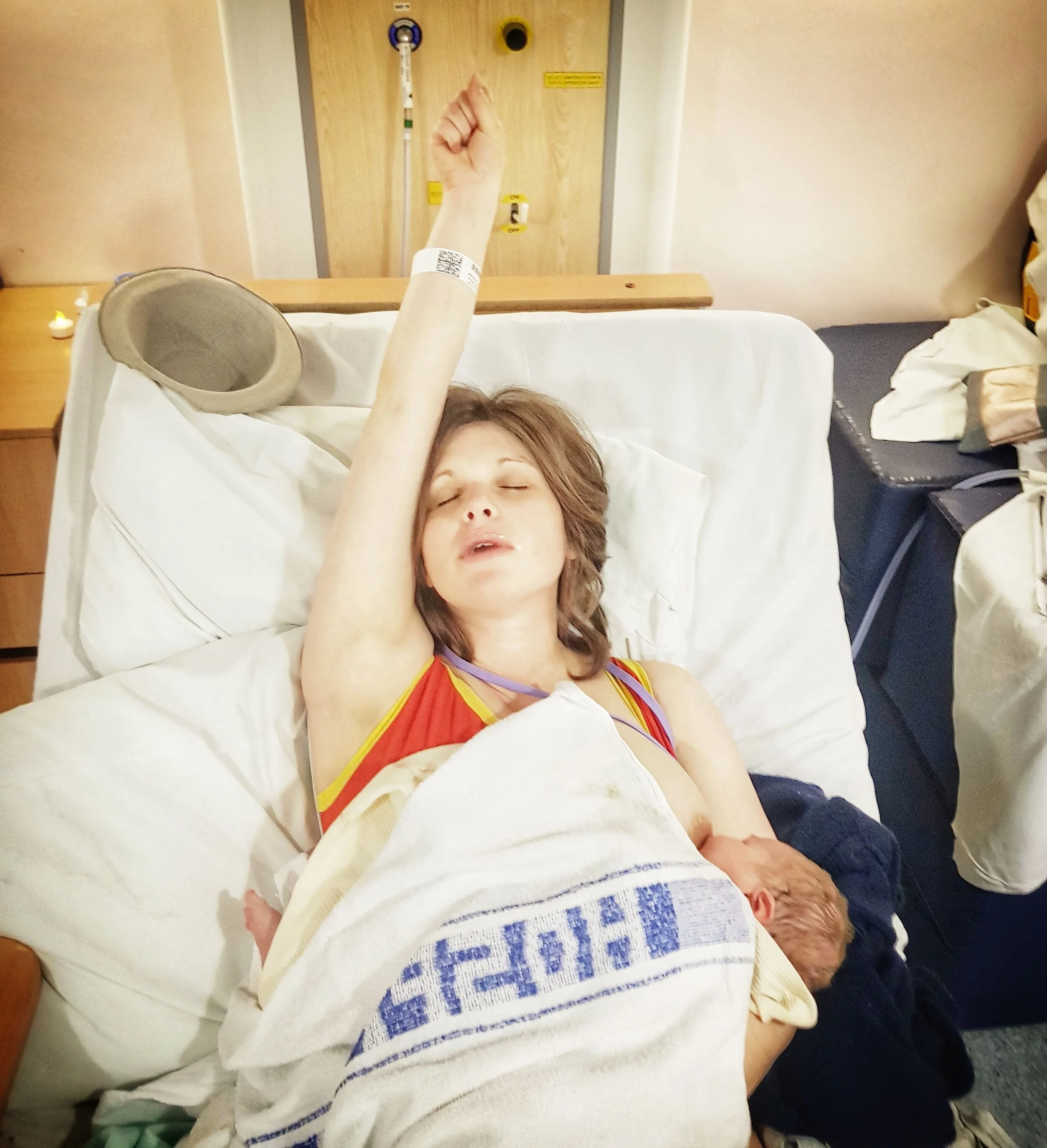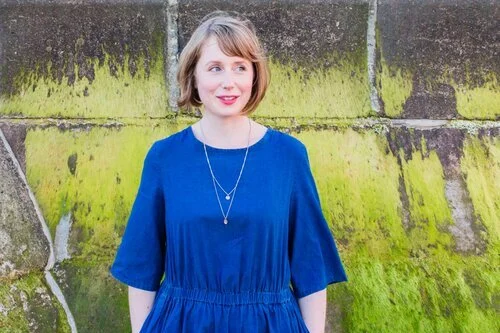In a two-part series, Camilla Pickles (Assistant Professor at Durham Law School (Durham University)) reflects on what ‘violence’ means in the context of ‘obstetric violence’. In part 1 she writes that ‘obstetric violence’ reveals that some of the things that women are subjected to during ‘normal’ facility-based childbirth should not be accepted as normal. The effectiveness of ‘obstetric violence’ to challenge ‘normal’ is dependent on how we understand ‘violence’ and our collective ability to recognise it in the particular context of childbirth in hospital settings. So, Camilla concludes, this means that we need to take a step back and ask: what does violence mean?
Read MoreTo what extent do women experience violence? In short: we don’t know. Right now, experiences are hidden out of sight, and will continue to be until we pin a suitable label on them and highlight their existence to others. In a two-part series, Camilla Pickles reflects on what ‘violence’ means in the context of ‘obstetric violence’. Important to explore, because there is a mismatch between how we understand violence more generally and what violence actually means in the context of obstetrics. In this first part she focuses on the origin of ‘obstetric violence’ and our limited understanding of the definition.
Read MoreA few weeks ago, an NHS Trust based in the south of England put out a tweet stating that freebirth (giving birth without medical assistance) was illegal. This is not true. The tweet was quickly challenged, and later withdrawn. But it led to the idea for the team at Birthrights of launching a short campaign to raise awareness of women and birthing people’s basic rights in maternity care. Birthrights’ Programmes Director Maria Booker shares what they are.
Read MoreAfter suffering from a miscarriage, Alys was fortunate to find out she was pregnant later in the year. She dreamed of an Instagram worthy pregnancy but was thrown a pandemic instead. She believes it has played an important role in her mental decline and her heart goes out to anyone who has experienced similar struggles.
Read MoreDr Andy Mayers (@drandymayers) is a perinatal mental health researcher and campaigner. He’s been working in the field for 17 years and has more recently been focusing on fathers’ mental health. Andy shares several insights from research he executed at Bournemouth University in 2020, however one thing that pervades all of that work so far is that partners are not getting the support they need regarding perinatal mental health, nor are they being recognised sufficiently by healthcare professionals in that respect.
Read More‘It helped me recognise what happened. It validated my experience. I can now set a name to it’, is what a woman shared with Ashleigh Watkins – a volunteer MSc graduate researcher for Make Birth Better – talking about the support she got from the Make Birth Better (MBB) website. By interviewing people, Ashleigh has analysed how the site helps those who identify with birth trauma navigate and make sense of their experience. She shares what supported people and helped validate their trauma.
Read MoreLucy’s partner Emma had a complicated, painful labour of 70 hours. Their daughter refused to feed post-birth and was expected to have viral meningitis. But, what Lucy writes about, though, is a slightly separate strand of this experience. It’s not the most traumatic part. But it is an experience which, unlike the complicated labour or their daughter’s illness, is one she’s never read about.
‘Practice what you preach’. In midwifery, or any healthcare profession for that matter, you hear this phrase a lot. As part of our code of practice, we have a duty to ensure our own well-being is cared for. But how do we do that? When the world is suffering from a pandemic that only amplifies all the problems already present within the NHS and maternity care – how do we find time for us? Chloe Kay Mendum, registered NHS midwife, shares her perspective.
Earlier this week we launched the findings of our study on how the pandemic is impacting maternity professionals. We are hearing a loud cry for help. Staff are not getting the emotional support they should be getting. From the start of the pandemic we have been saying that if professionals are not significantly supported, trauma will skyrocket. But what should support look like?
Another lockdown. The relentlessness of 2020 continues in 2021. But how are we still not listening? When maternity staff are shouting for help. Read about our latest study in which maternity care professionals share how Covid-19 is impacting them.
Charlotte – a 34-year-old veterinary surgeon turned scientist – held a positive pregnancy test in hand a few weeks before the UK plunged into lockdown. After a previous traumatic birth experience, she could have done without the stressful Covid birth planning. But during her labour she had two amazing midwives by her side who cared for her like she was the only birthing person in the world. Her birth made her respect and love her body again.
The right to touch your toes or have a full night’s sleep may be on a pregnant pause for you, but when it comes to your fundamental human rights, your pregnancy makes no difference. Neither should Covid-19.
Read MoreKim Thomas is CEO of the Birth Trauma Association, a charity that supports parents traumatised by birth. She is also writing a book called Postnatal PTSD: A Guide for Health Professionals. In this post she shares the story of Kate, one of the mothers interviewed for the book.
Angie thought her post-traumatic stress symptoms were something she would just ‘get over’ with time. She didn’t, and a post by a women’s health physiotherapist helped her realise she needed help. It's led her to growth and she’s here to share her story hoping it might encourage or help others too.
How does your birth trauma affect you when it’s your child’s birthday? This is a repost of Caroline’s story who first shared it as she approached the first anniversary – her daughter’s first birthday – on 4 February 2020. We feel it’s worth publishing again as many women who have experienced some sort of birth trauma will relate to her feelings.
Read MoreThere’s always two sides to a story. Last week we’ve been reflecting on the different sides of the coin for parents and professionals dealing with Covid restrictions. We’d like to share these words from someone who knows what it’s like on either end: a pregnant midwife.
Read MoreAfter an uneasy road trying to conceive, I finally got a positive test and I couldn’t have been happier. I did not have the smoothest of pregnancies, but luckily I received great care. Until COVID-19 changed everything for us.
Read MoreThis is a story of a positive second birth after earlier trauma. The thing is, I hesitate to use the word ‘positive’ because of the associations I have with it which I found to be quite damaging in my mental preparation for my second birth. In this post I try to explain why.
Read MoreThe pandemic causes a challenge for women giving birth. Reports of birth trauma are on the rise because of this. For Emma, this is the more reason to share a positive birth experience. She had a chance to heal after so much harm.
Read MoreWith partners not allowed to come to scans and live video recordings not being permitted, how can you still make sure that partners feel involved in their baby’s scans? Tracy shares what they came up with at the Royal Berkshire.
Read More














